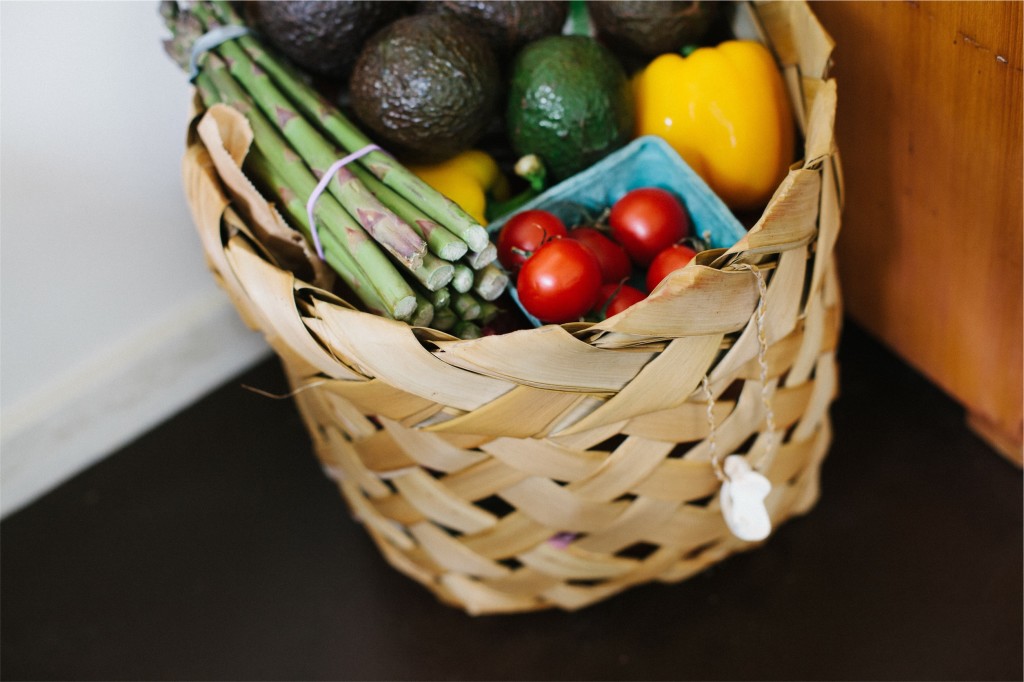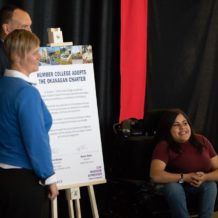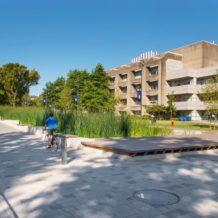26 March 2015 | Moderated by Sarah Joosse with panelists from Selkirk College, Simon Fraser University and Vancouver Island University.
This webinar explored key ingredients to creating connections and engaging campus community members using food and dialogue. Over a shared meal, many different connections are made; for example, between students and other campus community members and connections to resources and information, skills, underlying assumptions, new ideas and perspectives.
In communities, and increasingly emerging on campuses, “community kitchen” type models have shown promise in fostering engagement and sense of belonging, as well as building capacity and skills. Programs such as these are therefore becoming meaningful and promising approaches to promote mental health and well-being, healthy cultures of substance use and physical health.
Watch the Webinar View the Presentation
View Selkirk's Prezi Watch Dinner Basket Video
About the Webinar
Using two case study examples, Selkirk College and Simon Fraser University, participants learned about innovative programs campuses have implemented to create connections and encourage dialogue using food. Vancouver Island University shared their plan for a new food-related initiative and live during the webinar had an opportunity to pose questions to Selkirk College and Simon Fraser University about their key learnings.
Listen to the recording of this webinar to learn more about these innovative initiatives, hear participants’ key learnings about implementing a food-related initiative on campus and pose burning questions to presenters in the online community in the group "Using Food & Dialogue to Create Connections".
Learning Objectives
The goal of the webinar was for participants to learn about:
- Innovative examples of food-related initiatives on BC campuses
- Setting up and implementing an initiative/program
- How to gain administrative buy-in
- Resourcing a food-related initiative
- How to recruit student participants
- Fostering meaningful dialogue in a safe space
- Building social connection and engagement
- Helpful resources available to campuses for implementation
Featured Programs
Selkirk College shared an overview of the Dinner Basket Conversations and Selkirk Dinner Club.
In the fall of 2012 ten Selkirk College embarked on a pilot program on healthy eating and living. With funding provided by Healthy Minds | Healthy Campuses they cooked, ate together and explored what it means to stay well while being a college student. The Tenth Street Food Club was created to connect students with healthy eating habits and great food! A year later a Dinner Club started on Castlegar campus as well where students learn about cooking and budgeting. In January 2014, Selkirk started Dinner Basket Conversations where groups cook and eat a meal together and have a facilitated discussion that explores experiences and values around substance use.
Simon Fraser University Health Promotion described their Community Cooking Workshop series and share key outcomes.
The cooking workshops, facilitated by Peer Health Educators since 2013, form connections, start meaningful conversations and create a safe space for health related discussions. In a partnership with International Services for Students and Residence and Housing, SFU Health Promotion is inviting international students living on and off campus to participate in the cooking workshops. Participants work in small teams to prepare and enjoy a healthy meal while learning about nutrition and gaining food preparation skills. In addition to health education, the intention is to create a safe space for dialogue and inquiry related to well-being and to enhance meaningful social connection on campus.
Vancouver Island University posed key questions to representatives from Selkirk College and Simon Fraser University about their key learnings in running their food-related programs, as they build on their "Eat Before You Hit the Streets" initiative.
Nursing students from VIU are collaborating with Residence Advisors to learn about the culture in each of the nine residence buildings. The students plan to augment a current RA initiative called "Eat Before you Hit the Streets" with a focus on promoting healthy and safe relationships with substances and promoting safer choices. The goal of the initiative is to engage students in residence to consider their substance use and support changes to reduce the harms that may be caused in themselves or others, encourage students to understand their substance use, feel a sense of choice and control over their own risk taking and strengthen their resilience. The initiative also aims to encourage reflection on what substance use means to them, helps students manage risks and make a safety plan while fostering relationships to promote mental health/wellbeing. Their intent is to foster connections and social engagement through a shared meal and engaging activities.












